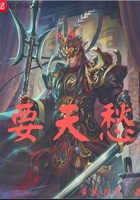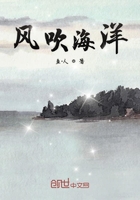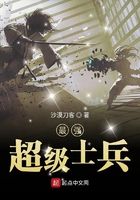"An' when he feenish da iron' he washa da wools," as she described it afterward. "He say, 'Maria, you are da greata fool. I showa you how to washa da wools,' an' he shows me, too. Ten minutes he maka da machine - one barrel, one wheel-hub, two poles, justa like dat."
Martin had learned the contrivance from Joe at the Shelly Hot Springs. The old wheel-hub, fixed on the end of the upright pole, constituted the plunger. Making this, in turn, fast to the spring- pole attached to the kitchen rafters, so that the hub played upon the woollens in the barrel, he was able, with one hand, thoroughly to pound them.
"No more Maria washa da wools," her story always ended. "I maka da kids worka da pole an' da hub an' da barrel. Him da smarta man, Mister Eden."
Nevertheless, by his masterly operation and improvement of her kitchen-laundry he fell an immense distance in her regard. The glamour of romance with which her imagination had invested him faded away in the cold light of fact that he was an ex-laundryman.
All his books, and his grand friends who visited him in carriages or with countless bottles of whiskey, went for naught. He was, after all, a mere workingman, a member of her own class and caste.
He was more human and approachable, but, he was no longer mystery.
Martin's alienation from his family continued. Following upon Mr.
Higginbotham's unprovoked attack, Mr. Hermann von Schmidt showed his hand. The fortunate sale of several storiettes, some humorous verse, and a few jokes gave Martin a temporary splurge of prosperity. Not only did he partially pay up his bills, but he had sufficient balance left to redeem his black suit and wheel. The latter, by virtue of a twisted crank-hanger, required repairing, and, as a matter of friendliness with his future brother-in-law, he sent it to Von Schmidt's shop.
The afternoon of the same day Martin was pleased by the wheel being delivered by a small boy. Von Schmidt was also inclined to be friendly, was Martin's conclusion from this unusual favor.
Repaired wheels usually had to be called for. But when he examined the wheel, he discovered no repairs had been made. A little later in the day he telephoned his sister's betrothed, and learned that that person didn't want anything to do with him in "any shape, manner, or form."
"Hermann von Schmidt," Martin answered cheerfully, "I've a good mind to come over and punch that Dutch nose of yours."
"You come to my shop," came the reply, "an' I'll send for the police. An' I'll put you through, too. Oh, I know you, but you can't make no rough-house with me. I don't want nothin' to do with the likes of you. You're a loafer, that's what, an' I ain't asleep. You ain't goin' to do no spongin' off me just because I'm marryin' your sister. Why don't you go to work an' earn an honest livin', eh? Answer me that."
Martin's philosophy asserted itself, dissipating his anger, and he hung up the receiver with a long whistle of incredulous amusement.
But after the amusement came the reaction, and he was oppressed by his loneliness. Nobody understood him, nobody seemed to have any use for him, except Brissenden, and Brissenden had disappeared, God alone knew where.
Twilight was falling as Martin left the fruit store and turned homeward, his marketing on his arm. At the corner an electric car had stopped, and at sight of a lean, familiar figure alighting, his heart leapt with joy. It was Brissenden, and in the fleeting glimpse, ere the car started up, Martin noted the overcoat pockets, one bulging with books, the other bulging with a quart bottle of whiskey.















